Voiceover [00:00:16] This podcast is proudly brought to you by Breast Cancer Network Australia. BCNA’s Online Network is a friendly space where people affected by breast cancer connect and share their experiences in a safe online community of support and understanding. Read posts, write your own, ask a question, start a discussion and support others. You're always connected, which means you're never alone. As our Online Network is available to you at every stage of your breast cancer journey, as well as your family partner and friends. For more information, visit bcna.org.au/onlinenetwork. Welcome to Upfront About Breast Cancer, What You Don't Know Until You Do: Unlimited with Dr. Charlotte Tottman.
Kellie [00:01:08] Welcome for the final time to What You Don't Know Until You Do: Unlimited with Dr. Charlotte. This isn't a topic, it's actually a recap and a bit of post discussion. So it's done and dusted, series two. It's never really over, is it? For someone who's had breast cancer, whether it's an early breast cancer diagnosis or someone who is living with metastatic disease?
Charlotte [00:01:33] Yeah, it is never really over. And I think that point is rammed home whenever you have, you know, a physical symptom and a spike in fear of recurrence and you might need to go and get something checked out. And it just feels like, am I ever going to feel safe and is this ever going to be not part of my life? Yeah, I've certainly had family members reflect on it to me and sort of go, is this it now? Is this is kind of how it's going to be for the rest of your life. And it's like, yes, it is. So yes, for people who have maybe listened to series one and or series two, we've covered a lot of territory, but there's a whole lot of other stuff that you'll be experiencing, have experienced and will go on to experience because this stuff does not end.
Kellie [00:02:16] So our title says it's what you don't know until you do and I know there is a lot I didn't know, but now I do. It all really seems so simple when you say it.
Charlotte [00:02:29] Yes. Well it isn't, is it? One of the things that I've been reflecting on, just thinking about having this little post series chat is that we've done these series to help raise awareness, give things a framework and a way of understanding them, put labels on them, you know, educate people, if you like, about why we might react to situations the way that we do in a breast cancer context. You know, hopefully, I believe that that has been really helpful to other people. But the God's honest truth is that I actually personally get a lot out of it, which still surprises me. But, you know, doing this series because I got a lot out of the first series myself, I processed a whole lot of personal stuff while I was recording. But actually, I have to say it has been that way for this series too. I feel like I have made sense of a few more things. There have been some moments in my mind where I've made connections that maybe weren't there before, and Rob and I have had some discussions after doing some of the episodes that we haven't had before. So it's amazing how helpful working through things, even if it is on repeat or stuff that I kind of have known and use in my work all the time. It's not like repetition makes it harder. Repetition makes it easier.
Kellie [00:03:46] I know many listening would be thinking if two clinical psychologists have failures and vulnerabilities and even get it wrong, get it messy.
Charlotte [00:04:01] So messy.
Kellie [00:04:02] I'm torn between saying it makes the rest of us feel a little better and then saying if you can't get it right, what hope does everybody else have?
Charlotte [00:04:11] I mean, I just think it's a really good reminder and reflection of the fact that at the end of the day, we're all just lumps of flesh. We're all just human. And that even with all of our knowledge and experience and even in the best of circumstances, when our rational minds are working nicely, you know, we still just human as everyone else just is vulnerable. And I think really, that's a good thing.
Kellie [00:04:36] How much benefit do you think there might be in people listening to some of the, is it like reading a book for a second time? Do you think they'll take more out of it?
Charlotte [00:04:45] The feedback from the first series is that, yes, quite a lot of people have said to me, I sort of went to reach for a pen and paper and then thought, Oh, actually I'll just listen to it again and I'll make notes then. So yeah, I do think that listening again, I mean, hey, you're in control. You can always hit the pause button.
Kellie [00:05:03] And to that end, I guess also I know we say it as, you know, hit share and rate and review and things like that, particularly with some of the more difficult conversations we had, like palliative care and death and dying and even the partners perspective, which was really fascinating when you can't get the words together to have that conversation, maybe hitting share is a really good idea.
Charlotte [00:05:29] That’s right. Exactly. And certainly that's what I know clients and feedback from listeners indicated is that they have used episodes as a resource for getting some of this stuff on the table with family members in a way that maybe they haven't felt able to do themselves. And I mean, that is one of the things that I am most proud of because I feel like perhaps we haven't just helped the person going through the cancer, we've helped the family and man, is that cool!
Kellie [00:05:58] I feel an enormous sense of gratitude that we've been able to do this series. What about you?
Charlotte [00:06:02] Yeah, I really do. I mean. Partnering with BCNA is awesome. I said to you this morning that, isn't it amazing that cancer brought you into my life? And I feel the same way about legendary producer Jane Neild. Like it is such a privilege, like to be able to do this is it's a rare thing indeed.
Kellie [00:06:22] And I also have a lot of gratitude, as I'm sure you do for your clients, for so many women and men in the BCNA community and wider community that are always so willing and generous to share their own experiences and their vulnerabilities in the hope that it will actually benefit someone else or make their experience a little bit better. And that always astonishes me, especially those that have that have lost their lives but wanted to share it and benefit others.
Charlotte [00:06:56] Yeah, there's a real sense of wanting to give back and and a spirit of generosity, which is gorgeous.
Kellie [00:07:03] And I'm really looking forward to seeing FONEBO on the Wikipedia catalogue.
Charlotte [00:07:09] Which I've worked out is actually a town in Sweden.
Kellie [00:07:14] Perfect. I really have absolutely thoroughly enjoyed our conversations and there's so many aha moments, even when we've worked through in pre-production about things that we should talk about. And there's always a few things that we didn't plan on talking about that have come up. It's a real not only an amazing resource, but a gift to have someone who not only is of your training, but the fact that you've had a lived experience gives it just a whole new view, doesn't it?
Charlotte [00:07:51] Yeah, and it's really cool to be able to do something good with that experience. It is like very stereotypically making lemonade out of lemons, but it's a great privilege to be here.
Kellie [00:08:02] And thank you too, to Rob for... I'm glad this is not a visual medium because he might get stopped down the street for all a range of reasons.
Charlotte [00:08:13] Yeah, bless him. He has been a rock through, I mean, he's been rock the whole thing, but he's incredibly supportive and giving of himself and his own vulnerability. And yeah, he's an uncommon species.
Kellie [00:08:28] Remember that BCNA is there for you who are listening and your loved ones. They are a group of people who really get it and dedicated to providing the really best resources and support for you. All the information is in the show notes, but bcna.org.au. You and of course, thanks to Sussan, who has been the podcast sponsor. And as you mentioned, to our very incredible, amazing Jane Neild, our producer, who is an excellent yardstick of where we're getting it right and where we're not getting it right, but also, you know, making the magic. And also our thanks to the SEN team, which is where we've recorded this podcast. Charlotte as you have said in some of the episodes, it's really important to say sorry for any embarrassments or any uncomfortable situations I put you in and thank you.
Charlotte [00:09:29] Right back at you.
Kellie [00:09:29] And thanks to you for listening. Kellie Curtain It's been fabulous to be upfront with you.
Voiceover [00:09:44] This podcast is proudly brought to you by Breast Cancer Network Australia, looking for practical information to help you make decisions about your diagnosis, whether DCIS early or metastatic breast cancer. BCNA’s My Journey features articles, webcasts, videos and podcasts about breast cancer during treatment and beyond to help you, your friends and family as you progress through your journey. It also features a symptom tracker to help you manage the changing symptoms you may encounter during your own breast cancer experience. My Journey. Download the app or sign up online at myjourney.org.au. This podcast is proudly brought to you by Sussan. Our theme music is by the late Tara Simmons. Breast Cancer Network Australia acknowledges the traditional owners of the land and we pay our respects to the elders past, present and emerging. This episode is produced on Wurundjeri land of the Kulin Nation.


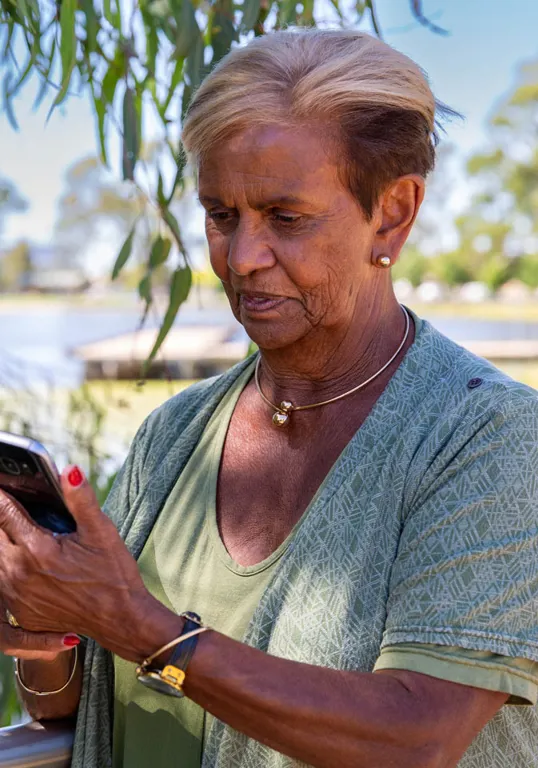




![[blank]](https://bcna-dxp.azureedge.net/media/dlin1jnj/time-to-count_national-roundtable-report_2023.jpg?width=384&height=240&format=webp&quality=80&rnd=133456083525330000)
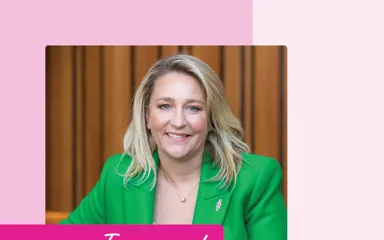
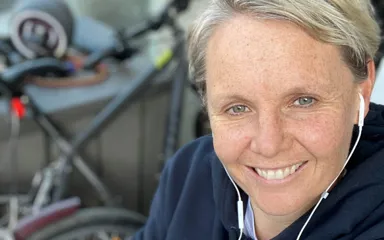
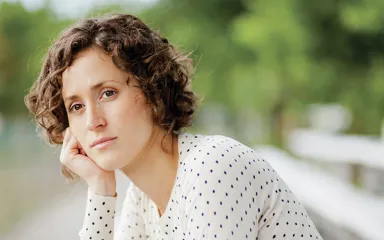
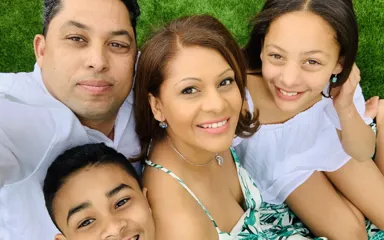
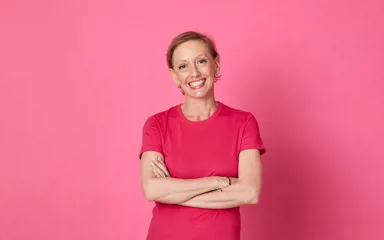
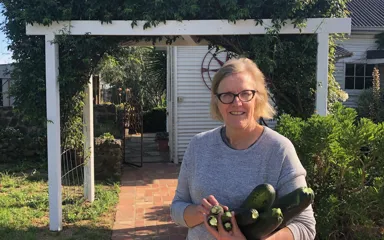
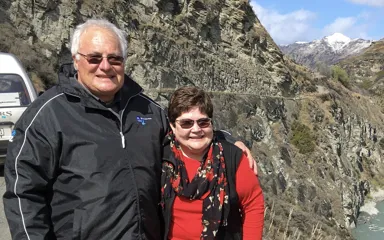
![[blank]](https://bcna-dxp.azureedge.net/media/dlin1jnj/time-to-count_national-roundtable-report_2023.jpg?width=64&height=64&format=webp&quality=80&rnd=133456083525330000)







Listen on